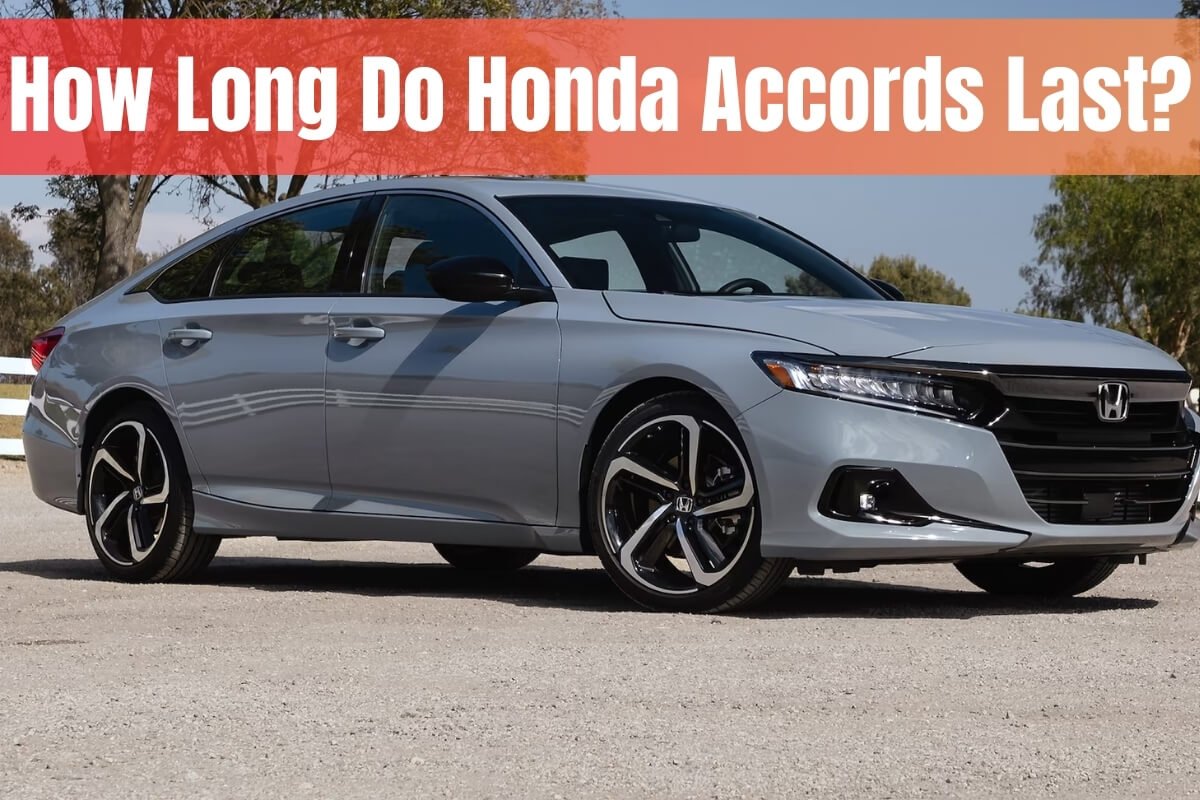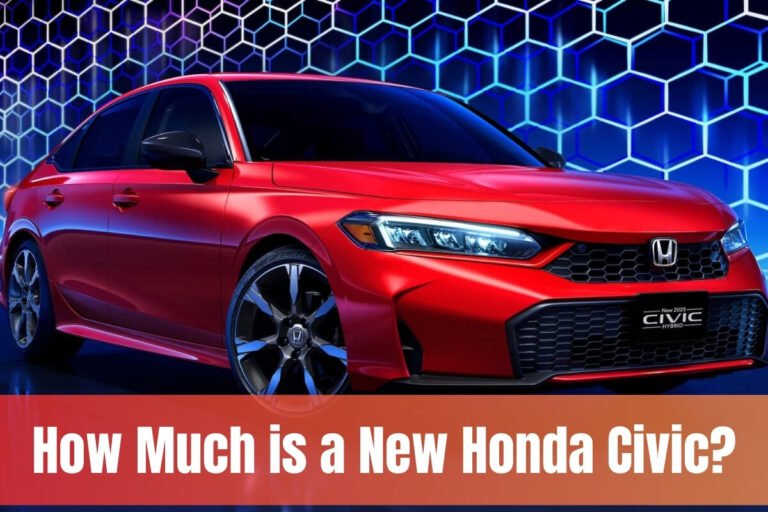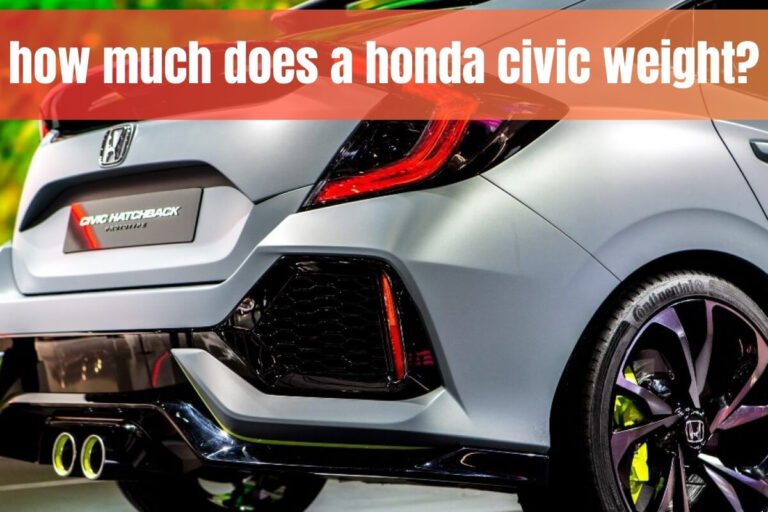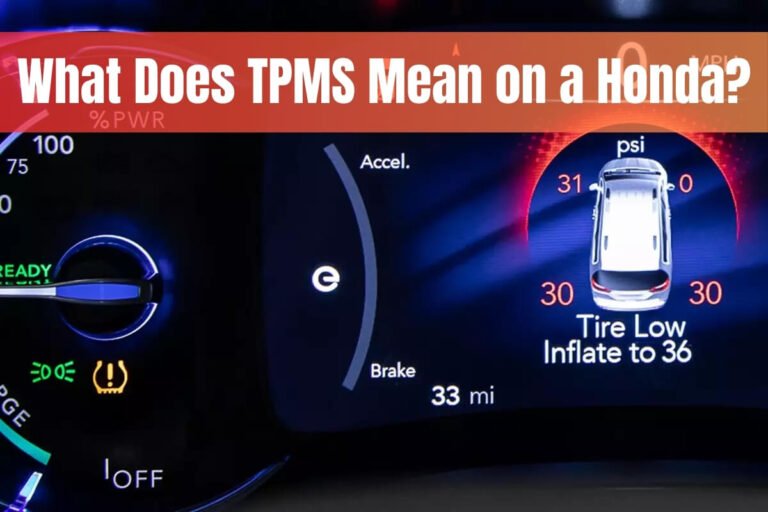How Long Do Honda Accords Last? The Definitive Guide

When it comes to long-lasting, reliable vehicles, few brands have a reputation as strong as Honda. The Japanese automaker has built a name for itself by producing affordable, fuel-efficient, and durable cars that can rack up serious mileage with proper care. One of Honda’s flagships in this regard is the Accord midsize sedan.
How long do Honda Accords last? With routine maintenance and conservative driving habits, a Honda Accord can realistically last 200,000 miles or more – equal to around 15-20 years of service for the average driver.
This comprehensive guide will dive deep into the incredible longevity of the Honda Accord lineup. We’ll explore real-world data on their expected lifespan, factors that impact how long they last, common issues to watch for as they age, and expert tips for maximizing your Accord’s mileage potential. By the end, you’ll understand why the Accord continues to be a smart choice for those seeking a reliable, long-lasting vehicle.
What is the Average Lifespan of a Honda Accord?
According to automotive research firms like iSeeCars and Consumer Reports, the average lifespan of a Honda Accord is around 200,000-300,000 miles with basic care and maintenance. This puts the Accord towards the top of the long-lasting midsize sedan segment, on par with rivals like the Toyota Camry.
Remarkably, there are many real-world examples of Honda Accords surpassing even that 300,000 mile mark. In 2021, a Minnesota man’s 2012 Accord reached an astonishing 1 million miles, with just routine maintenance like oil changes and timing belt replacements. While such extreme cases are rare, they demonstrate Honda’s commitment to engineering vehicles built to go the distance.
Factors That Influence a Honda Accord’s Lifespan
Not all Honda Accords will deliver the same lifespan. Several key variables can cause one Accord to last longer or have more issues than another, including:
Maintenance and Care: Like any vehicle, Accords that adhere to the manufacturer’s recommended service schedule tend to have the longest lifespans. Using genuine Honda parts, filters, and approved fluids is also ideal.
Driving Habits: Accords used primarily for highway cruising tend to last longer than those subjected to frequent stop-and-go city driving, which causes more wear and tear on brakes, transmissions, etc.
Operating Conditions: Extreme hot or cold climates, as well as dusty or salted environments, can accelerate part degradation over time compared to mild conditions.
Model Year and Updates: While Honda continually refines the Accord design, some model years do better than others. We’ll explore the most and least reliable Accord generations later.
Common Issues to Watch For in High Mileage Accords
Even with Honda’s reputation for quality, like any high-mileage vehicle, used Accords may develop some issues as they rack up the years and miles. Being aware of some of the most frequently reported problems can help you stay ahead of major repairs. Common issues Accord owners should watch for include:
Transmission Problems: Slipping, rough shifting, and eventual failure of automatic transmissions (especially on models in the early 2000s)
Excessive Oil Consumption: Older V6 Accord engines were prone to burning or leaking oil as they aged
Timing Belt/Chain Replacement: This critical service is generally needed every 60,000-100,000 miles to prevent catastrophic engine damage
Suspension and Steering Wear: Ball joints, control arms, and other steering/suspension components may need replacement at higher miles
Electrical Faults: Faulty sensors, wiring issues, and control module glitches are not uncommon in older, high-mileage Accords
Staying on top of the manufacturer’s suggested service schedule and having the vehicle regularly inspected can help identify and prevent some of these problems from becoming larger, costlier issues down the road.
How to Maximize Your Honda Accord’s Lifespan
While the Accord has proven itself as one of the longer-lasting midsize sedans available, following some basic maintenance and usage best practices can help you get the absolute most miles out of your vehicle:
- Follow the manufacturer’s recommended service schedule exactly, including all fluid changes, filter replacements, tuneups, etc. This is the #1 rule for longevity.
- Use only genuine Honda OEM parts and fluids approved for your specific Accord make/model/year. Third-party components may not meet Honda’s exacting specifications.
- Avoid aggressive driving habits like frequent hard acceleration, excessive idling, and abrupt braking. This leads to premature wear on components.
- Prioritize preventative maintenance like inspections, rotating tires, wheel alignments, etc. Catching issues early prevents them from becoming bigger problems.
- Keep up with your maintenance records to identify any recurring issues that may require more attention.
If possible, having your Accord serviced at the dealership by a Honda-certified mechanic is ideal, as they have direct access to updated service protocols and frequently-updated repair information specific to your vehicle. Their expertise can ensure your Accord operates at peak condition for miles to come.
The Importance of Timely Repairs
One of the biggest killers of vehicle longevity is ignoring small issues until they snowball into much larger problems. For example, a small brake fluid leak can eventually lead to a very costly overhaul of the brakes, calipers, and hydraulic system if left unaddressed.
The same applies to rust prevention – particularly important for Accords operated in snow-prone, salted environments. Promptly fixing minor paint chips and corrosion can prevent rust from compounding into a far bigger structural issue.
While higher repair costs are never ideal, investing in timely fixes at a Honda-certified center will likely be more economical in the long run versus putting band-aids on problems or neglecting them altogether. This proactive approach is key to unlocking an Accord’s incredible potential lifespan.
What is Considered High Mileage for a Honda Accord?
There’s no definitive mileage threshold where a Honda Accord is considered “high mileage.” But most sources tend to view 100,000 miles as the point where Accords leave the “low mileage” category behind.
Once an Accord crosses 150,000 miles, it’s generally considered a “high mileage” example of the model. And any Accords surpassing the 200,000 mile mark could reasonably be termed “very high mileage.”
However, the definition of high mileage depends heavily on factors like the Accord’s manufacturing year, how well it was maintained, operating conditions, etc. A 10-year-old Accord with 120,000 metropolitan stop-and-go miles may actually show more wear than a 15-year-old Accord with 160,000 highway miles that had frequent maintenance.
As an Accord enters high mileage territory, owners should stay extra vigilant for signs of excessive wear or breakdown. These include:
- Rough idling or misfiring
- Slipping transmission
- Suspension clunks or excessive bouncing
- Burning oil smells or plumes of blue smoke
- Dim instrument lights or other electrical issues
If any major issues start appearing, a compression test and thorough inspection can identify whether a high-mileage Accord is nearing the end of its viable lifespan.
Buying a Used High Mileage Accord – Pros and Cons
For budget-conscious buyers, a used high-mileage Honda Accord can present an attractive option to get an affordable, long-lasting sedan. But as with any used car purchase, there are pros and cons to consider.
Pros:
- Upfront costs are far lower than buying new, sometimes 50% less for an Accord with 150,000+ miles
- Honda’s reputation for reliability means a well-maintained, higher mileage Accord should still have years of service life remaining
- Parts are plentiful and relatively inexpensive for repairs
Cons:
- Higher mileage vehicles likely have some degree of wear that will require more frequent repair/maintenance
- The Accord’s full maintenance history may not be available, leading to unknown issues
- May be difficult to find affordable financing options from banks for ultra-high mileage versions
When purchasing a used, high mileage Accord, be sure to get a comprehensive vehicle history report. Have it thoroughly inspected by a trusted mechanic, looking at compression, fluid levels/conditions, brake/suspension component wear, and checking for any error codes. A pre-purchase inspection costing $100 can save you from buying someone else’s problem car.
What Honda Accord Years/Models are Most Reliable?
Over the Accord’s nearly 50-year production history, some model years tend to be more reliable and longer-lasting than others. Here’s a quick breakdown based on data from sources like Consumer Reports, JD Power, and owner forums:
Most Reliable Honda Accord Years:
- 6th Generation (1998-2002): Rock-solid models with capable engines and few major reported issues. The 2000-2002 V6 models are especially praise-worthy.
- 7th Generation (2003-2007): Continued the strong reputation, especially the 2004-2007 four-cylinder models. Excellent ratings for reliability and owner satisfaction.
- 8th Generation (2008-2012): Some early models had issues like excessive oil consumption from the V6, but the 2011-2012 refresh addressed many of those problems. Generally great reliability.
- Current 10th Gen (2018-Present): Brand new engines and transmissions have helped make this the most dependable and problem-free Accord generation yet, according to experts.
Least Reliable Accord Years:
- 9th Generation (2013-2017): Widespread reports of battery sensor issues, driveshaft corrosion problems, electrical glitches, and some troublesome V6 engines and transmissions. The 2015-2017 models improved over earlier years.
- 3rd Generation (1986-1989): An aging design coupled with some dated technology made this generation more prone to maintenance issues as miles accumulated.
Of course, a vehicle’s specific reliability depends heavily on how well it was maintained. But choosing an Accord model year with fewer inherent issues to begin with gives you a head start toward reaching higher mileage.
Featured Snippet Optimization Section
Q: How many miles can a Honda Accord typically last?
A: With routine maintenance and conservative driving, a Honda Accord can realistically last 200,000 miles or more – equal to around 15-20 years of service for the average driver. However, there are many documented cases of Accords surpassing 300,000 and even reaching the million mile mark.
Q: What are the most common Honda Accord issues?
- Transmission problems like slipping, rough shifting, failure
- Excessive engine oil consumption and leaks
- Need for timing belt/chain replacements
- Worn suspension and steering components
- Electrical faults and sensor issues
Q: How can I get the most miles out of my Honda Accord?
- Follow the manufacturer’s recommended service schedule
- Use only genuine Honda OEM parts and approved fluids
- Avoid aggressive driving that causes excess wear
- Get regular inspections to catch issues early
- Keep detailed maintenance records
Q: Is buying a high mileage used Accord a good idea?
A used high mileage Honda Accord can be a good value since they’re built to last. Just be sure to get a detailed vehicle history report, thorough pre-purchase inspection and address any issues before buying. Finding one with complete service records is ideal.
Ending Thoughts
The Honda Accord has cemented itself as one of the longest-lasting, most durable midsize sedan options on the market. With basic recommended service, the Accord can realistically deliver 200,000 miles of reliable transportation – and in many cases much more.
While no vehicle lasts forever, taking a proactive approach to maintenance, using quality parts, and driving conservatively can help Accord owners maximize their vehicle’s lifespan. Being diligent about timely repairs is also critical to preventing minor issues from snowballing into costlier breakdowns.
Certain Accord model years like the current 10th generation and the 6th/7th generations of the late 90s/early 2000s have proven to be among the most dependable. But any well-maintained Accord can potentially reach very high mileage with patience and care.
For smart buyers seeking long-lasting value and dependability in a midsize sedan, the Honda Accord continues to be one of the top choices year after year. With this trusty guide, you now have the key insights to get the most out of your Accord for years and miles to come.






